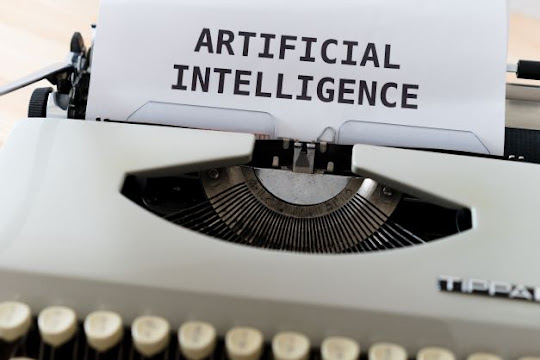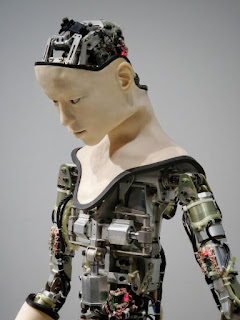Artificial Intelligence is growing at an alarming rate, with each passing year bringing new advancements in machine learning and cognitive computing. Because AI can learn so many different types of information in such a variety of ways, it's without a doubt that it will affect everything from education to business to health care.
There are still a lot more kinks to work out before these cognitive computers match their human counterparts, but they have already made great strides toward mimicking not just our outward behavior but also our thought processes. How will AI affect the future? We answer this and more questions in this post.
What is Artificial Intelligence?
Many years ago, about ten years after world war 2, Alan Turing raised the question, "Can Machines Think?" This is the question that made AI come about. Let's see what AI is. Artificial intelligence can be defined as the effort to artificially incorporate machines with humanlike intelligence so that they can perform tasks that would likely be performed by humans and even surpass them.
In other terms, AI also refers to a branch of computer science that focuses on building smart machines that do things that would normally require the intelligence of human beings.
What are the benefits of AI?
As AI becomes more mainstream, a lot of people are worried about what it means for their jobs. After all, if an AI system can do your job better than you, should you still have that job? This is a valid concern- but a little perspective can go a long way.
The benefits of Artificial Intelligence include faster product development, and better services at lower costs, which are things we want in our everyday lives. Imagine a world where everything from self-driving cars to intelligent medical systems to automated marketing platforms works together to make life easier.
People who currently work in those areas may lose their jobs, but they'll be able to apply their skills in other areas of growth. AI will also help people get some time off work as most of the work will be done by artificially intelligent devices, which is good. As humans, we need some rest. We aren't designed to work eight hours every day or think about work always.
How AI will affect the future
AI is doing much in our lives and will do even much better in the future. Whether it is in robotics, the Internet of Things(IoT), or other areas, AI has been a game-changer.
Now people around the world can converse naturally with artificially intelligent machines. Advanced AI is being used in the military, in medical systems, in smart prostheses, education, social networks, etc.
AI in smart prostheses - Presently, AI is being used in smart prostheses. People like Hugh Herr began to develop prostheses after his lower limbs were amputated.
He now has AI limbs with countless sensors and computers.
He can now pursue his passions like climbing and do other physical activities without facing any difficulties. Because of this, he no longer considers himself disabled. In the future, there is a possibility that AI will definitely be developed to merge with the human body where needed, and maybe people will become super smart.
The future of AI Driverless cars- Although the technology is yet to be perfected, automated vehicles aka self-driving cars will become popular one day. What's good about automated vehicles is that the number of accidents will be reduced, the number of car hijackers and criminals will be reduced as these cars will be under surveillance, etc. However, such technology comes with disadvantages like high cost.
The future of AI in the military- In today's world, we witness the development of autonomous systems like loitering munitions. The use of autonomous drones and swarming will surely change the way war is done. Loitering munitions fly to a target area or wait or loiter in the sky while scanning for a target. Once they find the target, they don't drop a bomb but fly right into it to destroy it on impact.
There are many areas in the military that will be using AI in the future. Currently, a lot of money and resources are being invested in developing lethal autonomous weapons for use during the war. With such weapons, humans won't stand a chance against them.
The future of AI in health- In health, AI will change the way patients are diagnosed and the way how medicines are tested. Ai will solve also the issue of the shortage of nurses and doctors who can tend to the sick. Several AIs that diagnose thousands of ailments are being developed and the future is even more promising.
Above we mentioned a few of the areas which AI is going to affect. AI will also affect agriculture, education, social lives, and many other areas. Let's look at the misconceptions about AI below.
Misconceptions about AI
Because of its impact, so much has been said by religious groups, tech experts, scholars, and many others concerning the subject of Artificial Intelligence. AI has surely changed the way we do things and our lives in general.
In the future, this change is likely to be doubled or tripled- no doubt about that. You might have heard a lot of stuff about the future of AI from your friends, relatives, or the media. Not to say all their talk is false, but not everything people say about AI is correct. Some are just misconceptions and fears that people have about what AI can do to people's lives. Let's look at two common misconceptions about AI.
The misconception that AI is a specific entity - One major misconception about Artificial Intelligence is that it's a specific entity. AI, according to Duke University computer scientist Stuart Russel, is really a collection of different technologies. AIs are created using a variety of programming languages and methods-some with more potential for use in applications than others. For example, many AI algorithms use machine learning, which allows programs to learn by trial and error instead of being told how to solve problems.
Another popular method for creating AI is Natural Language Processing NLP in short. NLP allows machines to parse human language and understand its meaning. With NLP, certain software can read text on websites or documents like books and reports-and even spoken language. In fact, you might already be interacting with AI on your smartphone right now: Google uses NLP technology when you ask a question via voice search or text message.
Most modern AIs also have some form of perception capabilities; they can see images or hear sounds and then understand what they're seeing or hearing based on training data sets that developers have provided with them.
The misconception that AI will destroy humans- Another misconception about AI is that AI will become more intelligent than humans. Quite a number of people and futurists are afraid that AI will exceed human control. Many debates about this have been going on about this possibility. AI can now write its own code without human supervision and maybe one day it might think of doing away with the human race. That is what a lot of people are concerned about.
From what we have discussed above, it can be concluded that the future will be greatly changed by AI. Several AIs are being developed and the field of AI is advancing at a very fast pace. The question is, Is AI a blessing or an evil that will destroy us one day? Let us know your answer in the comments below.







0 Comments